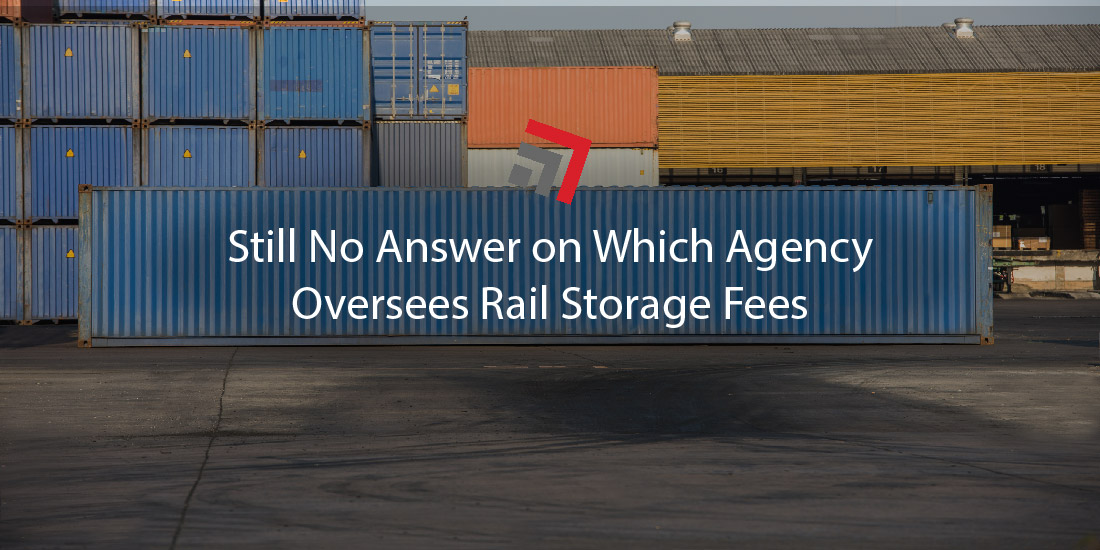Land or sea – which one has the authority?
This seems to be the existential question that federal regulators are mulling over. It has still yet to be determined which one of two U.S. government agencies will be given oversight of storage fees railroads charge for ocean containers.
The two agencies in the running for the jurisdiction are the Federal Maritime Commission (FMC), the authority of maritime trade, and the Surface Transportation Board (STB), the regulatory purveyor of rail and trucking (surface) transport.
The lack of a decision has tormented U.S. international intermodal shippers. As the debate continues, Congress has now intervened—in an attempt to finally deliver clarity on the matter.
Proposed legislation calls on agencies to clarify authority
Stakeholders have reported that California Representative John Garamendi is drafting legislation in order to prompt the FMC and STB to draft a memorandum of understanding over which agency has authority over international intermodal freight.
This looming order may be the push that the two agencies need. When confronted before, the FMC and STB have basically shrugged their shoulders and beaten around the bush—seemingly evading the issue.
The FMC has never acknowledged it has the authority to oversee fees (demurrage), despite conflicting responses that they do among the agency’s commissioners.
While the general stance of the FMC hasn’t clarified a position, a collection of the agency’s members, or commissioners, have advocated for extending the FMC’ authority to intermodal freight.
As far as the STB’s position goes, the agency has alluded to the 1980 Staggers Act, specifically the law’s legalization of private contracts between shippers and railroads. The STB cites this as the reason it will not oversee shipper disputes with demurrage.
All the while, shippers have grown outspoken about their collective confusion over which agency presides over demurrage. Naturally, these concerns found their way to Garamendi’s desk. As the representative of California’s 8th congressional district, the Port of Oakland is on the congressman’s home turf.
Oakland, as well as for Los Angeles and Long Beach ports, has been a bastion for volatile rail dwell times over the last couple of years.
Garamendi, who is a member of the House’s Transportation and Infrastructure Committee, is well-positioned to put the gears in running to resolve this issue.
Final Thoughts
Aside from compelling the FMC and STB to clarify their positions, the proposed legislation would also seek to codify that rail demurrage on ocean containers be billed to the carrier (steamship line) which would then pass along the charge to the appropriate shipper, or beneficial owner of the loaded cargo.
This additional provision—making it the law that ocean carriers are the billed party for demurrage—strongly suggests Garamendi’s legislation would favor a world where the FMC is the government agency responsible for storage fee oversight on international intermodal freight.
Please contact us if you have any questions regarding this topic or any others in domestic logistics. In addition, stay up to date with weekly headlines from both trucking and rail via our Road Map newsletter.
More blogs similar to this:



Recent Comments